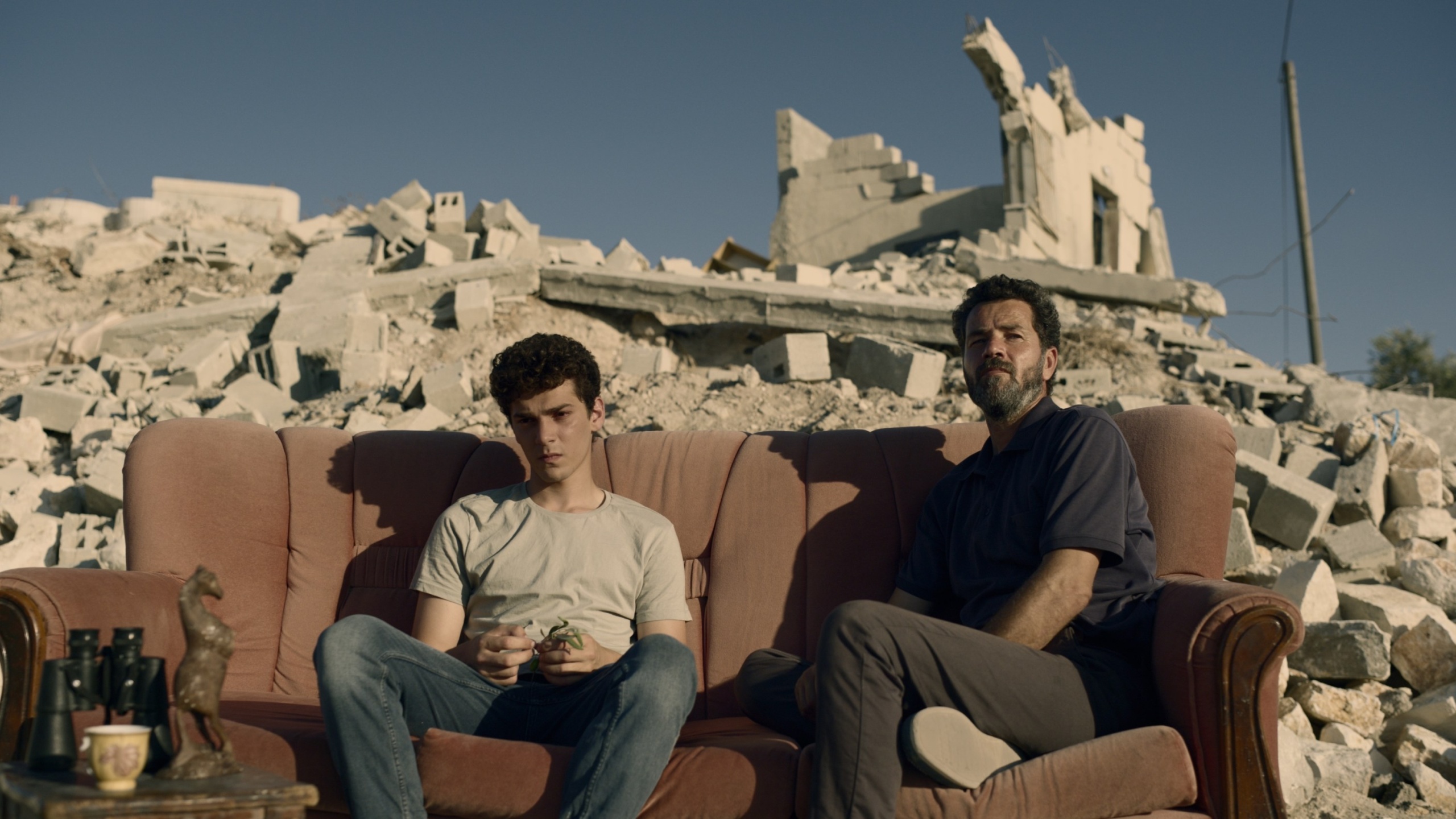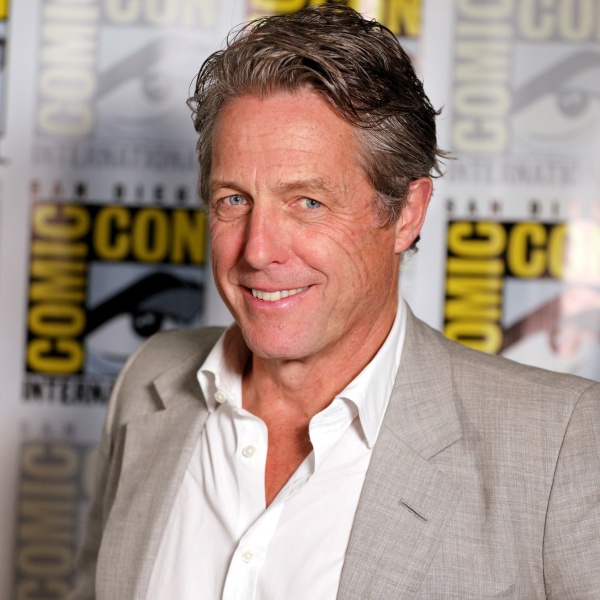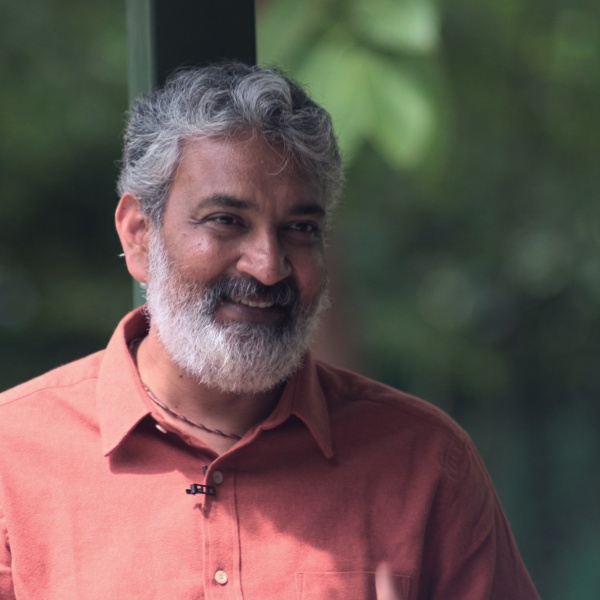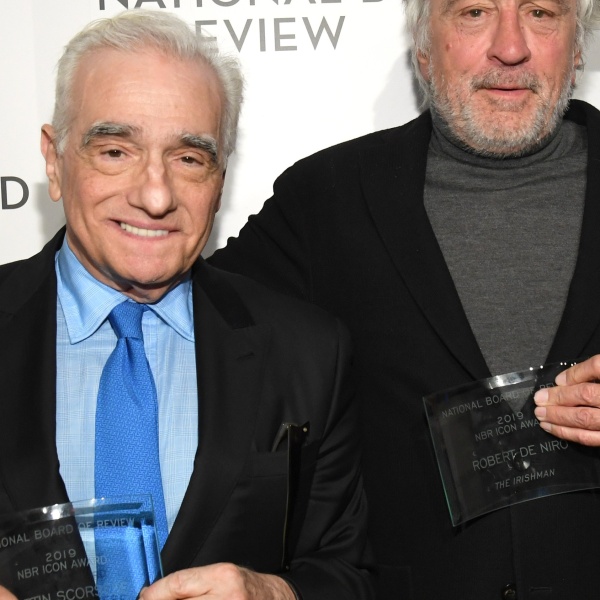“The Teacher” opens with text informing the viewers that the film was “Inspired by True Events.” Most obviously, this refers to the case of Gilad Shalit, an Israel Defense Forces soldier whose imprisonment by Palestinian militants and 2011 release in exchange for over 1,000 Palestinian prisoners is lightly fictionalized during the movie. But more broadly, it speaks to the film’s commitment to portraying the struggles of living in Palestine in a time of perpetual strife, where violence and displacement is a constantly looming threat and justice feels constantly out of reach.
Although Shalit’s capture and release inspired the backbone of Farah Nabulsi’s debut feature, his counterpart in the film, Nathanial Cohen, is a mere plot device spoken about more than he’s glancingly seen. Our protagonist is instead completely fictional Basem (Saleh Bakri, most recently seen in “The Blue Caftan”), a Palestinian man who teaches English at a small boys school. At his job he’s stern but gentle, guiding shyer students through oral recitations before chewing out the troubled Yacoub (Bakri’s younger brother Mahmoud) when he hands in a phoned-in assignment. But although he puts on a peaceful and decidedly nonpolitical front, Basem is also a man with deep anger toward the occupation of his country, and the film slowly reveals his ties to the Palestinian political resistance group that have held Cohen in captivity for three years, who eventually charge him with keeping the prisoner at his home.
In brief flashbacks, Basem had a son and wife, but when the film begins he’s currently living alone in the same small village as Yacoub and his meek brother Adam (Muhammad Abed El Rahman). Yacoub and Adam’s father died several years ago, and the two often act as surrogate sons to Basem while he picks up fatherly duties towards them, rallying to support them when their house is abruptly bulldozed by Israeli settlers. He stresses patience toward the hot-headed Yacoub, who has a criminal record looming over him — warnings that prove tragically founded when Yacoub confronts settlers burning down the town’s olive trees, only to be shot dead in the process. From that inciting incident, “The Teacher” promises a potentially emotionally devastating story of revenge — one that never really manages to take off.
Before “The Teacher,” Nabulsi won a BAFTA and netted an Oscar nom for her debut short, “The Present,” which, like her debut feature, also starred Bakri, and was shot in Palestinian territory in the West Bank. Nabulsi, who was born and raised in London to parents from Palestine, is clearly passionate about using her work to bring attention to the way Israel’s violence towards Palestine impacts the every day lives of civilians. But good intentions don’t always translate to strong storytelling, and in “The Teacher” — which frequently resembles an elongated short film rather than a fleshed out feature — good intentions are pretty much all that show up onscreen.

The central dynamic of the film is between Basem and Adam, who is left devastated after Yacoub’s death and bitter as it becomes increasingly clear this his murderers are unlikely to receive significant punishment. When Israeli forces looking for Cohen begin searching their neighborhood, Adam discovers Basem’s double life and forcibly inserts himself in it, hoping to find some sense of justice and purpose. Basem, who clearly sees his own son in the furious Adam, does everything in his power to keep him in line, and the push-pull between the two is the engine for the majority of the film’s conflict. But the chemistry is off; there’s no real sense of shared history between the men, and little real friction or tension results from their arguments.
Bakri, a talented actor with perfectly weary eyes, does what he can with the material, but newcomer Rahman struggles to add dimension that simply isn’t there in Nabulsi’s unengaging script, which skates over the particulars of these characters in favor of keeping them as broad, largely forgettable archetypes. In the third act, Adam moves into Basem’s house, and the resulting domestic activities that bring the two closer together is covered in a quick, rushed montage that pushes their bond further out of the audience’s grasp.
Other relationships get too much attention, such as Basem’s romance with Lisa (Imogen Poots). A social worker from Britain assigned to look after Yacoub, Lisa feels like a vestigial character pretty much from the jump, an unnecessary audience surrogate with limited personal investment in the life or death conflict that Basem and Adam are embroiled in. But the film insists on throwing her together in scenes with Basem, as he helps her situate to life in the West Bank and takes her on romantic car rides to sample local cuisine. As gorgeous as Bakri and Poots are onscreen, together they have the spark and chemistry of two coworkers talking one-on-one for the first time at a work dinner, and their inevitable coupling never manages to justify itself as a necessary — or even enjoyable — part of Basem’s overall arc.
With so much time sucked up by the tacked-on romantic subplot, “The Teacher” gives short shrift to dynamics that carry much more necessity and weight. Basem’s backstory is dolled out in a few short perfunctory flashbacks. Also involved in the action is Cohen’s parents, Simon (Stanley Townsend) and Rachel (Andrea Irvine). American Jews who disapproved of their son running off to join the IDF (an invention for the film; the real Shalit was born and raised in Israel), the two express discomfort and ambivalence about the actions of the Israeli government, though they still partner with them to find their son. In the best scene in the film, Simon and Basem briefly come face-to-face, and their parallel struggles as fathers whose sons have been affected by the conflict comes into focus — even as Basem astutely points out how Simon’s child is given much more humanity and priority than his own. It’s a raw moment of emotion that briefly brings the film alive, but doesn’t uplift what’s surrounding it.
In a climate where Palestinian perspectives on the conflict are given limited opportunity for exposure, it’s difficult not to root for a film like “The Teacher” which provides a necessary counterbalance. But the movie struggles to translate its noble aims to compelling drama, with any audience investment merely being a byproduct of the inherently high stakes. The film’s conclusion is a moment that should provoke righteous anger from the audience; thanks to the consistently undercooked end product, it’s a struggle to feel much of anything at all.
Rating: C
“The Teacher” premiered at the 2023 Toronto International Film Festival. It is currently seeking U.S. distribution.







